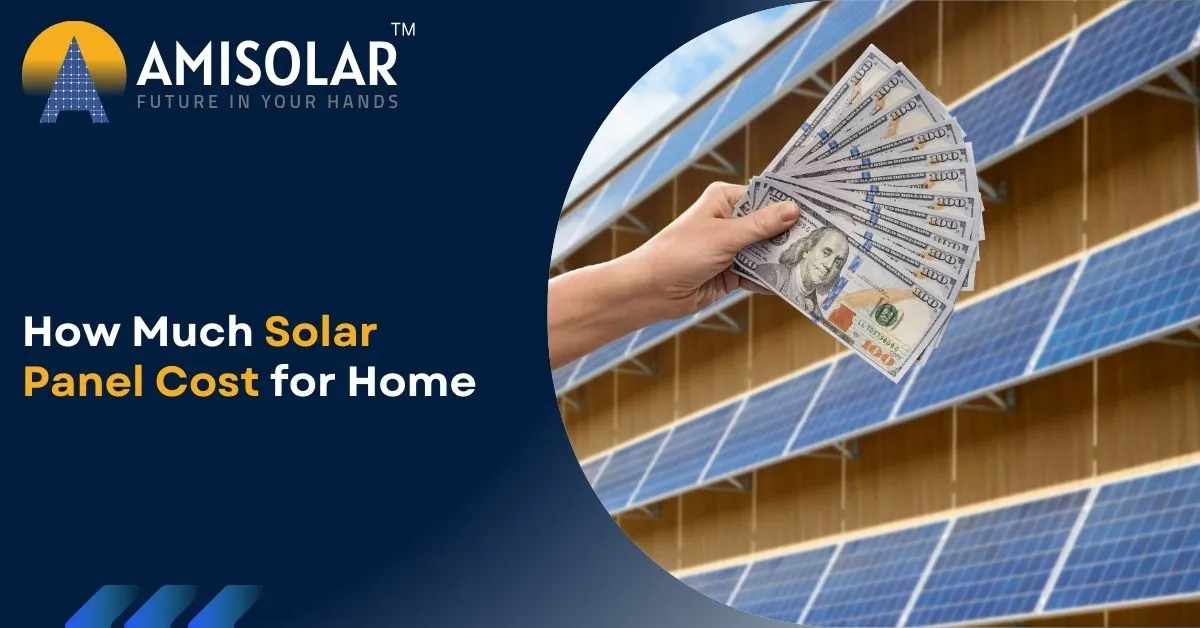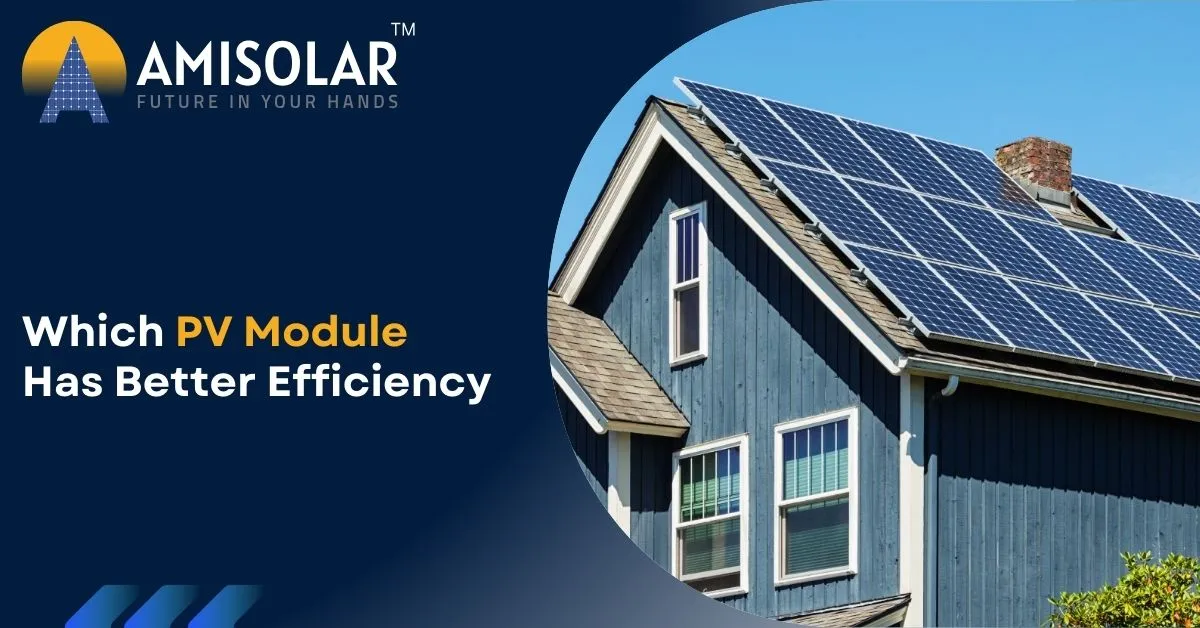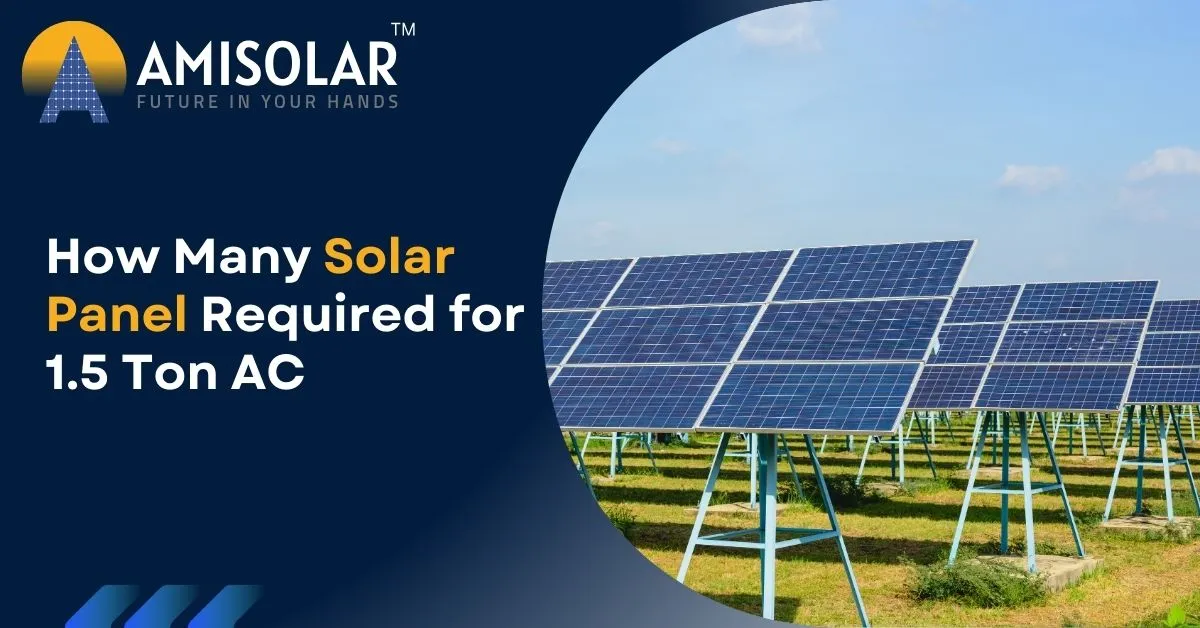When considering solar energy for your home or business, one of the most important factors…

As energy prices rise and concerns over the environment grow, many homeowners are turning to solar panels as a sustainable and cost-effective alternative to traditional energy sources. Solar power can significantly reduce electricity bills and even provide the opportunity to sell excess energy back to the grid. But before making the leap, it’s important to understand the costs involved in installing solar panels for your home. This blog will give you a detailed overview of the factors affecting solar panel costs and how you can estimate the expenses.
Factors That Influence the Cost of Solar Panels for Homes
The cost of solar panels for homes can vary greatly depending on several factors. Here are some of the key elements that influence pricing:
- System Size (Capacity): The size of the solar system you need depends on your energy consumption. A typical home in India might need a 3 to 5 kW solar system, but larger homes or those with higher energy consumption may require systems in the range of 10 kW or more. Larger systems naturally come with a higher price tag.
- Solar Panel Type: There are different types of solar panels available, including monocrystalline, polycrystalline, and thin-film solar panels. Monocrystalline panels, known for their efficiency and longevity, tend to cost more than polycrystalline or thin-film panels.
- Quality and Brand: The quality of the solar panels and the brand you choose can significantly affect the cost. Premium brands offer higher efficiency and better warranties, but they may come at a higher price. On the other hand, local brands may provide more affordable options, though they may not always offer the same level of efficiency.
- Installation Costs: The cost of installation is a significant portion of the total cost of solar panels. Installation costs depend on the complexity of the system, your roof’s condition, and the geographical location of your home. Generally, solar installation costs in India can range from ₹15,000 to ₹25,000 for a typical home, though this varies based on the size and type of system.
- Government Subsidies and Incentives: The Indian government offers various subsidies and incentives to promote solar energy adoption. For example, the Ministry of New and Renewable Energy (MNRE) provides subsidies to residential users to reduce the upfront cost of solar panels. These subsidies can significantly lower the overall cost, making solar panels more affordable.
Looking for more information on solar panel installation? Contact us today for a free consultation and to explore the best solar solutions for your home!
Cost of Solar Panels for Homes
On average, the cost of a solar panel system in India can range from ₹30,000 to ₹60,000 per kW, including both the cost of panels and installation. Here’s a breakdown of what you can expect to pay for different system sizes:
| System Size | Total Cost (Approx.) | Annual Energy Savings | Payback Period |
|---|---|---|---|
| 1 kW | ₹30,000 to ₹60,000 | ₹7,000 to ₹10,000 | 4 to 5 years |
| 3 kW | ₹90,000 to ₹1,80,000 | ₹21,000 to ₹30,000 | 4 to 5 years |
| 5 kW | ₹1,50,000 to ₹3,00,000 | ₹35,000 to ₹50,000 | 4 to 5 years |
| 10 kW | ₹3,00,000 to ₹6,00,000 | ₹70,000 to ₹1,00,000 | 4 to 6 years |
Note: These are approximate costs and can vary depending on the panel type, brand, location, and installation complexity.
What Does a Typical Solar Panel Installation Include?
A complete solar panel installation typically includes the following components:
- Solar Panels: The main component that captures sunlight and converts it into electricity.
- Inverter: This device converts the DC (direct current) electricity generated by the solar panels into AC (alternating current) electricity, which is used to power your home.
- Mounting System: The mounting system is used to attach the panels to your roof, ensuring they are stable and secure.
- Battery (Optional): While not always necessary, some homeowners choose to install batteries to store excess energy generated during the day for use at night.
- Wiring and Electrical Connections: These components are essential for connecting the solar system to your home’s electrical system.
How Can You Save on Solar Panel Costs?
- Look for Government Subsidies: The Indian government offers financial incentives that can significantly reduce the cost of installing solar panels.
- Choose a Smaller System Initially: If you’re not sure about the scale of the system you need, you can start with a smaller system and expand it later.
- Shop Around for Solar Panel Brands and Installers: Prices can vary between different installers and brands, so it’s a good idea to compare prices and services.
- Consider Financing Options: Many solar providers offer financing options, making it easier to afford solar panels without paying the full cost upfront.
Conclusion
While the initial cost of installing solar panels for your home may seem significant, the long-term savings on your energy bills and the environmental benefits make it a worthwhile investment. Solar energy can reduce your dependence on traditional power sources, lower your carbon footprint, and offer long-term financial savings. By taking advantage of government incentives and doing thorough research, you can make an informed decision that aligns with your energy needs and budget.
If you’re ready to make the switch to solar energy, it’s crucial to work with a reputable solar panel provider and installer to ensure that you get the best system for your home at an affordable price.


